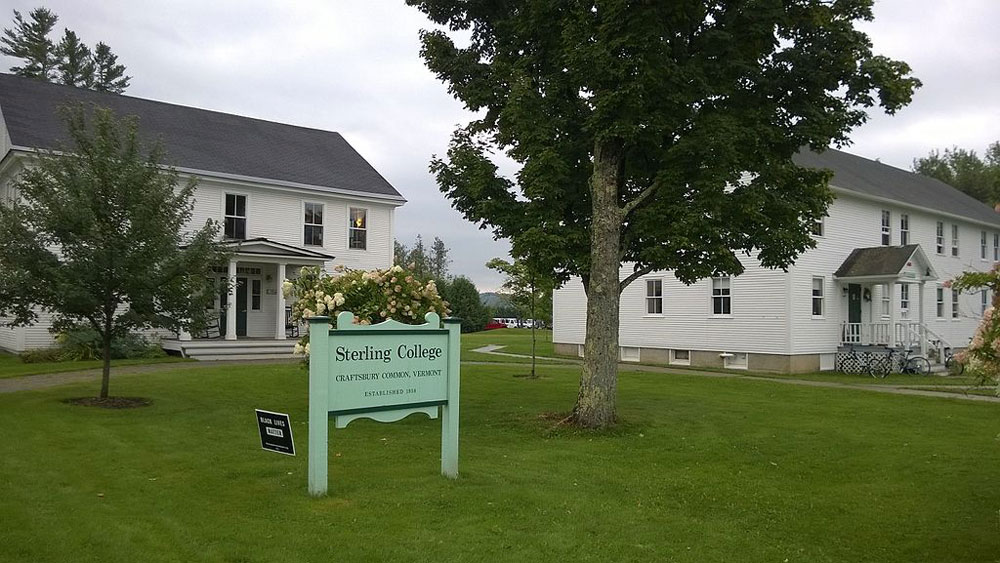
June 17, 2019; VT Digger
Recently, we have written a number of stories about small colleges figuring out how to rebrand themselves in an increasingly difficult operating environment. Some see this as merely a shift in marketing, but others approach the task with a mission shift in mind.
This looks to be the case at Vermont’s Sterling College, whose website’s homepage reads, “This Is A Climate Emergency.” It’s a message that they want prospective students to see: Sterling shows integrity and intends to be purpose-driven in every aspect of its being.
That purpose is to combat the heedlessly extractive economy and the consumption that flows from that. Matthew Derr, Sterling’s president, says, Bottom of Form
“For a college to try to be green, to have LEED-certified buildings and farms on campus, but then to turn around and teach economics and liberal arts in a way that perpetuates an extractive economy and that promotes consumption—that’s a problem.”
The school believes in an integrated approach, writing, “Sterling believes that neither the narrow technician nor the uninformed idealist alone will be ready to address the critical issues facing humanity.” Among the new features of the school is its Kentucky-based Wendell Berry Farming Program, which is intended to help counter destructive farming practices. Though Derr concedes that on its face the program “makes zero sense,” the NoVo Foundation apparently does not think so, having funded the program to the tune of $3.5 million.
Sign up for our free newsletters
Subscribe to NPQ's newsletters to have our top stories delivered directly to your inbox.
By signing up, you agree to our privacy policy and terms of use, and to receive messages from NPQ and our partners.
Is this a boutique approach? With a desired enrollment of only 125, you could certainly make that argument. (Derr says “124 would be too few, 126 would be too many.” The school expects 120 in the fall.) Still, Sterling is resisting any expansion of the student body across the two sites. They want to retain the characteristics that keep the school and its students sustainable.
Sterling’s students work on campus, which leaves them with relatively low debt. He says if they do expand, it will be to add online courses and maybe graduate programs.
“We’re really talking about growing our scope instead of growing scale,” Derr said.
Derr says he knows Sterling is a bit unusual, but that may be the way of the future.
“Plenty of colleges out there have good people studying this, and putting their education to good use,” Derr said. “But I don’t think any other college has conceived themselves in this way.”—Ruth McCambridge













